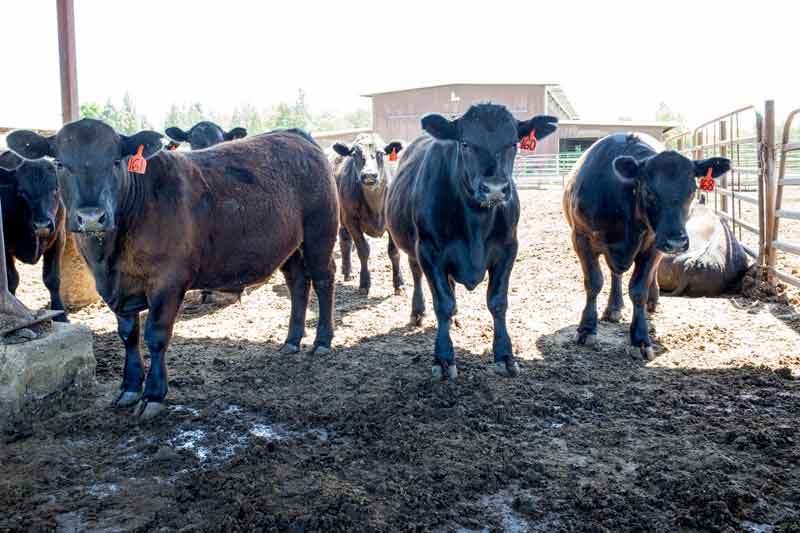
Someone enjoying a burger from the Sierra Nevada Restaurant is actually eating a steer that grew up on Chico State’s University Farm munching on the brewery’s spent grain. For now, that’ll remain the same.
A proposed regulation by the U.S. Food and Drug Administration, “Current Good Manufacturing Practice and Hazard Analysis and Risk-Based Preventive Controls for Food for Animals,” aims to increase animal-food safety by requiring animal-food facilities to take preventive steps to ensure the food is safe.
Breweries were originally included in these new regulations because many provide their spent grains to farmers to feed their livestock, making them animal-food facilities.
The FDA heard the industry’s pleas and issued an update April 24 stating it agrees with the industry and doesn’t plan on disrupting it.
The Sierra Nevada Brewery provides the farm spent grain as part of student research on how the grain affects the animals, said David Daley, the farm’s director.
“It is sustainable, local and utilizes a product that would otherwise potentially go to landfills,” Daley said.
During the FDA’s public-comment period, The Beer Institute and American Malting Barley Association wrote a 20-page report highlighting why the FDA should exempt beer brewers from these regulations.
This spent grain is the residue of malt, grain and, sometimes, corn or rice that remains in the mash kettle after the mashing and loitering stages of brewing. Yeast and other by-products are removed during other stages of this process.
“This is a sustainable practice that really makes a lot of sense,” Daley said. “The production of beer is highly regulated to be safe for human consumption, so the idea that these brewers’ grains that are a by-product would be anything unsafe for animals is surprising.”
The FDA update recognized the safety of spent grain so long as common-sense steps are taking to minimize safety hazards.
“We also believe the potential for any animal safety hazard to result from this practice is minimal, provided the food manufacturer takes common sense steps to minimize the possibility of glass, motor oil or other similar hazards being inadvertently introduced, such as if scraps for animal feed were held in the same dumpster used for floor sweepings and industrial waste,” wrote Michael R. Taylor, The FDA’s deputy commissioner for foods and veterinary medicine, in the blog update.
These regulations could have cost a single brewery more than $13.5 million, according to the report.
Around 2.7 million tons of wet spent grain is created by American breweries as a byproduct of brewing beer. Less than 10 percent of the spent grain heads to landfills, and these regulations could have changed the spent grain’s course.
Sierra Nevada, as an established brewery, was certain it wouldn’t revert to landfills, but other smaller brewers might have had to, said Ryan Arnold, its communication manager.
If these regulations caused an issue with Sierra Nevada, the farm would have to begin purchasing supplemental feed and cease research with the spent grain, Daley said.
The regulations won’t affect farmers or brewers, so the farm can continue its sustainable practices. Students can continue research, and Sierra Nevada can continue brewing beer.
Yessenia Funes can be reached at [email protected] or @yessfun on Twitter.








